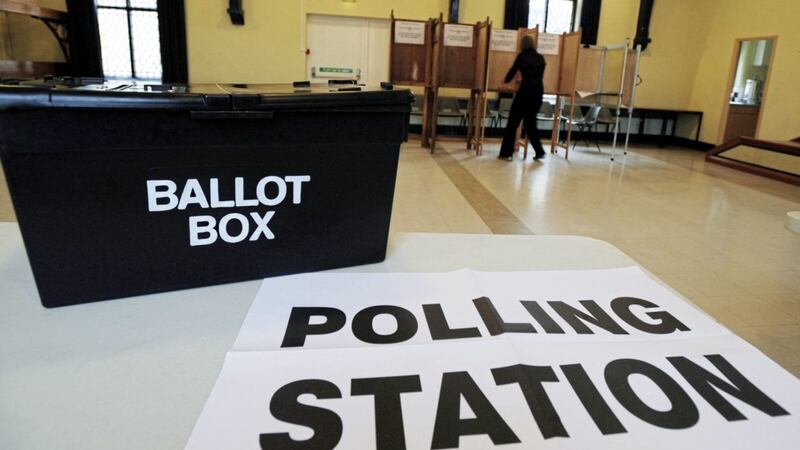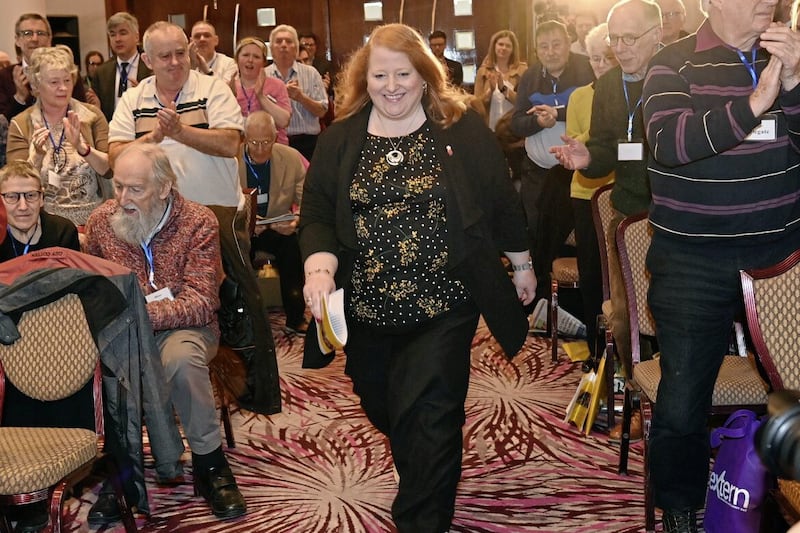THE FIRST results from yesterday's Stormont election poll are expected to be declared this afternoon.
Counting will begin at three count centres this morning, beginning with the verification of ballots.
There are 90 assembly seats in total up for grabs, with five in each of the 18 constituencies across the north.
A total of 239 candidates are running.
The single transferable vote system means candidates who exceed a quota specific to each constituency will be automatically elected and their surplus votes transferred to those left in the field.
Counting will take place at three centres in Belfast, Jordanstown and Magherafelt.
The DUP won 28 seats at the last Assembly elections in 2017, just ahead of Sinn Fein which returned 27 MLAs.
Next was the SDLP with 12 seats, the Ulster Unionist Party with 10 seats, Alliance with eight seats, the Green Party with two seats while People Before Profit and the TUV had one MLA each.
This year, the DUP has been regarded as playing it safe, running 30 candidates, while Sinn Fein is running 34.
Meanwhile, the UUP is running 27 candidates, the Alliance Party is running 24, the SDLP is fielding 22, TUV is putting up 19 candidates, the Green Party is running 18 and People Before Profit 12, as is Aontu, while the Workers Party is running six candidates and the PUP three.
The Irish Republican Socialist Party (IRSP) and the Socialist Party are each fielding two candidates, while the Northern Ireland Conservatives, Cross Community Labour Alliance (CCLA), Resume NI and Heritage Party are each running one candidate.
The election has been billed by some as the 'most important for a generation', coming 24 years after the Good Friday Agreement saw the establishment of devolved power-sharing administration.
It has the potential to be historic for a number of reasons, including the possibility that Sinn Féin could emerge as the assembly's largest party, meaning the nomination of a nationalist first minister for the first time ever.
Recent polling has put Sinn Féin ahead of the DUP in terms of first preference votes, while it has also indicated a surge in support for the Alliance Party.
The last opinion before the election, published in The Irish News earlier this week, had Naomi Long's party and the DUP vying for second place.
The outcome of the poll will be crucial for Sir Jeffrey Donaldson in his first election since becoming DUP leader last year.
The results will give in an indication of whether the electorate shares the DUP leader's much-publicised concerns about the Northern Ireland protocol and his claim that a Sinn Féin first minister will lead republicans to intensify the campaign for a border poll.
The anticipated growth in support for Alliance will bring pressure to bear on the SDLP, which ahead of yesterday poll was Stormont's third largest party with 12 seats.
The Ulster Unionists, contesting their first election under Doug Beattie, will also be hopeful of retaining their fourth place in the assembly's pecking order.
Chief Electoral Officer Virginia McVea said last night that polling was going "smoothly" and that voters were "generally content" with the arrangements around mask wearing.
"Voting seems to have followed the usual pattern and has been busy and steady across all constituencies," she said.
Provisional turnout figures suggested voter numbers were greatest in Fermanagh-South Tyrone, where turnout often exceeds the average, and South Down. Polling was most sluggish in East Antrim.







